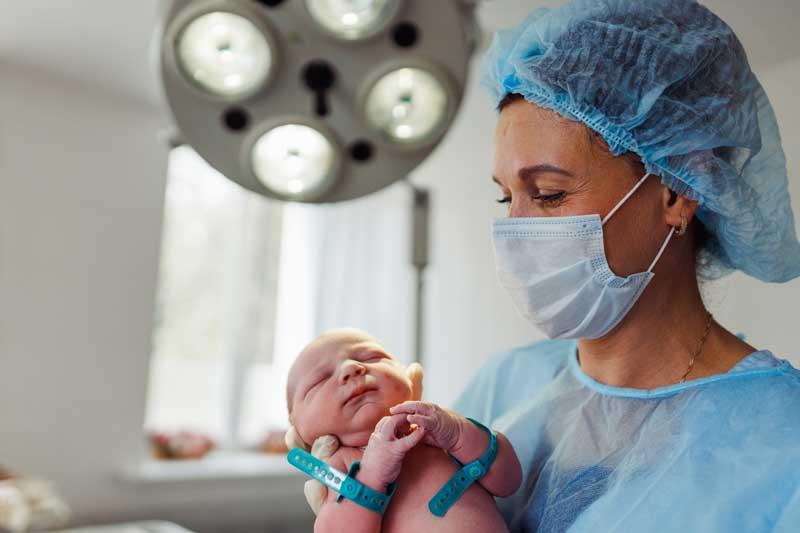Featured
Tags
Share
- Home / Blog / Tips for Students / What's the Best Way to Become a Physician Assistant?
What's the Best Way to Become a Physician Assistant?

Explore this guide to becoming a PA.
If you want to work in the medical field, but you don’t want to spend years in medical school and in residency in order to become a doctor, becoming a physician assistant might be the right career path for you. Find out what a physician assistant is and how to become a physician assistant in this helpful guide.
What is a physician assistant?
Physician assistants are healthcare providers who examine, diagnose and treat patients. Physician assistants (PAs) are supervised by doctors.
Where do physician assistants work?
PAs work in all types of medical settings, including clinics, hospitals, medical offices, outpatient centers and government agencies.
What do physician assistants do?
Physician assistants must be licensed in the state in which they work, and states specify what duties a PA can perform. In general, a physician assistant can:
- Perform physical exams.
- Order and interpret lab and diagnostic tests.
- Diagnose and treat illnesses.
- Design treatment plans.
- Prescribe medicine.
- Assist in surgeries.
Physician assistants do not specialize in a particular field; PAs are educated in general medicine. Their general medical education gives PAs great flexibility in choosing or changing the focus of their practice without the need for additional education or training.
Is being a physician assistant in high demand?
Yes, physician assistants are in high demand! According to the U.S. Bureau of Labor Statistics, PA employment is projected to grow 27% between 2022 and 2032, which is much faster than the average growth projection for all jobs.1
How to become a physician assistant
To become a physician assistant, you’ll need a master’s degree, you must pass a certifying exam and you’ll need to get licensed. Here’s the best way to become a physician assistant in four steps:
- Earn a bachelor’s degree from an accredited university. Although you can choose any major, most physician assistant programs require a number of science courses to be completed prior to enrollment. To meet those requirements, many future PAs major in science — biology, biomedical science, chemistry, biochemistry and microbiology are typical undergraduate degrees. No matter what undergraduate major you choose, it’s important to attend an accredited college to ensure that the courses you take meet education quality standards.
- Attend an accredited physician assistant program. Typically, physician assistant schools take two to three years to complete, and most award a master’s degree, a Master of Physician Assistant Studies (MPAS), to graduates. The Accreditation Review Commission on Education for the Physician Assistant (ARC-PA) is the agency that defines the standards for PA education, evaluates PA programs and accredits PA programs.
- Pass the certification exam. After you graduate from an accredited PA program, you can take the Physician Assistant National Certifying Exam, or PANCE. This exam is administered by the National Commission on Certification of Physician Assistants (NCCPA). You must pass the exam in order to become a PA. In order to remain certified, you’ll need to complete continuing medical education (CME) every two years and pass a recertification exam every 10 years.
- Apply for a license from your state’s physician assistant board. After you pass the PANCE, you can apply for licensure in the state in which you wish to work. Be sure to check your state’s requirements first to make sure you meet them.
Physician assistants are in demand. After earning your bachelor’s degree, you could become a PA in as little as two years — which is a lot faster than going to medical school! Chamberlain University is an accredited university that offers a Master of Physician Assistant Studies degree program in Chicago. With small class sizes, a comprehensive curriculum and the opportunity to safely practice skills in our SIMCARE CENTERTM, Chamberlain’s MPAS program can prepare you to take the PANCE and pursue a fulfilling career diagnosing and treating diseases as a physician assistant.
Chamberlain University, an accredited institution, offers bachelor’s, master’s, doctoral and certificate programs in nursing and healthcare professions. With a growing network of campuses and robust online programs, Chamberlain continues to build on more than 130 years of excellence in preparing extraordinary healthcare professionals.
Chamberlain University is accredited by the Higher Learning Commission (www.hlcommission.org), an institutional accreditation agency recognized by the U.S. Department of Education. The baccalaureate degree program in nursing, master’s degree program in nursing, Doctor of Nursing Practice program and post graduate APRN certificate programs at Chamberlain University are accredited by the Commission on Collegiate Nursing Education, (https://www.aacnnursing.org/CCNE).
1Source: www.bls.gov/ooh/healthcare/physician-assistants.htm
By Chamberlain University
More from Tips for Students
Request More Information
To receive the Chamberlain University Program Guide, including associated career paths, please select a program of study.






